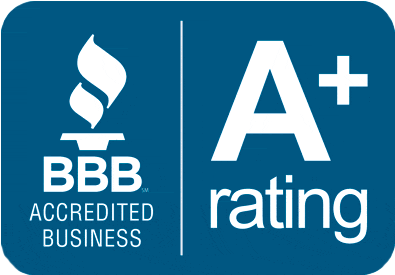When we first fall in love, few of us imagine our marriage ending in divorce. Yet, for many, it’s a common reality. According to the American Psychological Association, around 40 to 50% of first marriages in the United States end in divorce. This brings up important questions about shared assets, particularly real estate. If you’re facing a divorce, you may be wondering: do you have to split all assets 50/50? And what are your options for the house?
Can You Divorce Without Selling the House?
You may have choices when it comes to keeping or selling the house during divorce proceedings. One of the first steps is to inform your lawyer and the court of the date you acquired the property. This date is crucial, as it helps determine whether the house will be treated as a shared asset, which may need to be sold and divided, or if it qualifies as separate property that won’t require division.
If the court rules that the property is “separate”—meaning it was acquired before the marriage, gifted to you alone, inherited, or purchased using separate assets—then, in both community property and equitable distribution states, your spouse may not have a claim to it. However, there are exceptions to this rule. For example, if significant improvements were made to the home during the marriage that increased its value, the court may consider that added value as a shared marital asset. Consulting with a lawyer is essential to clarify whether your home is a separate or marital asset, as this classification can significantly impact your options in a divorce.
Understanding Marital vs. Separate Property
In divorce, assets are typically divided based on whether they are classified as marital or separate property. Marital property includes assets acquired during the marriage, while separate property generally includes those acquired before the marriage or through inheritance or personal gifts. However, nuances such as increased property value due to marital funds or joint efforts can complicate this classification. A legal expert can help you understand your rights and options, ensuring you make informed decisions about your real estate during this difficult time.
A court will look at several factors to decide who gets the house, including:

The value of the property.

The financial circumstances of each partner.

The employability of each partner.

Both physical and monetary contributions to the marital home.

The age and physical and mental health of each partner.

The amount of time each partner will have custody of the children.
Who Gets the House in a Divorce?
When it comes to dividing assets in a divorce, state law plays a significant role in determining who gets what. Most states, including Pennsylvania, operate under the principles of equitable distribution. This means that, rather than simply splitting assets evenly, a judge will divide marital property in a way that the court considers fair. Equitable doesn’t always mean equal—instead, it considers various factors, such as each spouse’s financial contributions and non-financial roles, like raising children.
In contrast, community property states have different rules. Nine states—Arizona, California, Idaho, Louisiana, Nevada, New Mexico, Texas, Washington, and Wisconsin—plus Alaska (if couples opt-in) follow community property laws. Here, all marital assets acquired during the marriage are generally divided 50/50, with few exceptions.
When it comes to dividing a marital home, there are several options that you, your spouse, and/or the court might consider:
Option 1: One Spouse Buys Out the Other
In equitable distribution states, one spouse can negotiate to keep the home by buying out the other’s share. This often involves compensating the departing spouse for their share in the property’s value. If you and your spouse agree on this option, you’ll also need to take over the mortgage, if applicable, and legally transfer the title to your name within the timeline set by the court. This arrangement allows one party to keep the home without needing to sell it.
Option 2: One Spouse Retains Use of the Home Until Children Turn 18
In many cases, courts may grant one spouse—often the primary caregiver of children—use and occupancy of the home until the youngest child reaches 18. This arrangement can provide stability for children during the divorce transition. The occupying spouse may or may not be responsible for covering mortgage payments, utilities, and other home-related expenses, depending on the court’s decision. Once all children reach adulthood, the home may then be sold, with proceeds divided between both parties.
Option 3: Co-Ownership of the Home
Divorce doesn’t always mean having to split everything entirely. In some cases, ex-spouses choose to co-own the home for the sake of family stability, especially if children are involved. For example, if one spouse serves as the primary caregiver but lacks the financial means to buy out the other, both spouses can remain co-owners of the property. This arrangement allows the family to maintain stability but requires trust and clear agreements to ensure both parties fulfill their financial obligations, as missed payments could impact both individuals’ credit.
Option 4: Immediate Sale and Division of Proceeds
Selling the home and dividing the equity can be the most straightforward approach in many divorces. Once the home is listed and sold at an agreed-upon price, the proceeds can be divided 50/50 or according to the court’s specifications. This method provides a clean break and helps both parties move forward without ongoing financial ties. However, a quick sale may not always be possible, especially if the market is slow, the home needs repairs, or there are outstanding liens. In such cases, selling directly to a homebuyer or investor can be a faster, more efficient solution to close the chapter and allow both parties to move on with minimal delays.
Each of these options has unique benefits and challenges. Discussing them with a trusted attorney and financial advisor can help you find the best approach for your family and financial situation during this difficult transition.
Selling Your House During A Divorce?
Contact Us For Your Cash Offer Today!
Steps to Sell a Home During Divorce
1. Hire A Divorce Specialist Real Estate Agent
Before listing the home, it’s essential to sort out property division through your lawyers or the court. Divorce can be a turbulent, emotional time, and having an experienced real estate agent with a background in divorce sales can make the process easier. Letting professionals guide you ensures that you avoid common pitfalls and handle this sale smoothly.
2. Agree On Home Sale Specifics
Decide with your partner on how to approach the sale. Are you aiming for a quick sale to divide the assets and move on, or do you want to invest time and money into repairs to potentially increase the sale price? If you and your partner can’t agree, the court may step in to make these decisions.
If you choose to make repairs or upgrades, ensure you both agree on how to split these costs and how this investment will impact the final division of profits. Clarifying these details in writing with your lawyers can prevent conflicts later.
There are additional factors to consider: Which agent will handle the sale? What’s the initial listing price? Will one of you remain in the home until it’s sold, or will it be vacant? Who will cover mortgage payments, bills, and upkeep while the home is on the market? Settling these specifics with your lawyers can save significant time and money compared to resolving them in court.
3. Know What to Expect in Order to Close the Sale
One final step where teamwork may be necessary is reviewing offers from buyers. If there are only a few offers, the decision might be straightforward. But in competitive markets with multiple offers, you and your partner may need to discuss which one suits you best, factoring in aspects like contingencies or total profit. Agreeing on a strategy beforehand—whether to take the highest offer or the first offer with minimal contingencies—can help streamline the process.
4. Divide the Proceeds
Finally, once the sale closes, you’ll divide the proceeds. Ideally, you and your partner (or the court) have already agreed on how the funds will be split. If there are liens or other obligations on the property, the escrow company will pay these off first before distributing the remaining amount, allowing you both to move forward without unresolved financial entanglements.
OR (the easy way)
5. Sell Your House AS-IS to A Cash Buyer
Are you finding it difficult to communicate with your ex-partner, or maybe you both prefer to avoid the stress of lengthy discussions altogether? If you’re ready to move on from your marriage and start fresh, or if the emotional strain from divorce is making traditional home-selling options feel overwhelming, a fast and direct sale of your shared property might be the ideal solution. Selling to a local cash home buyer can provide the simplicity, speed, and relief you need to move forward with your life.
Cash buyers, such as iBuyLehigh, purchase homes in any condition, regardless of the sellers’ financial or marital circumstances. They offer cash, eliminating the need for mortgage approvals and reducing the usual delays that come with traditional real estate transactions. This can be especially beneficial during a divorce, where time, stress, and finances are often pressing concerns. By specializing in rapid closings, direct cash buyers enable homeowners to transition out of their property swiftly—often in just days or weeks instead of months.
Another significant advantage of selling to a cash buyer is the ability to sell as-is. Whether the house has been well-maintained or needs extensive repairs, cash buyers will take it in its current condition. This means you won’t need to worry about paying for costly upgrades, renovations, or repairs to make the property “market-ready,” nor will you have to endure the hassle of open houses, staging, or dealing with buyer demands. Cash buyers see the potential in every property, regardless of its condition, and make offers based on that value.
For couples going through a difficult and often costly divorce, this approach can be a lifeline. Selling directly to a cash buyer provides a fair cash offer for the home and simplifies the sale process, allowing both parties to avoid the back-and-forth of negotiations, whether through real estate agents or legal representatives. Without the need to coordinate repairs, staging, or marketing efforts, you and your ex-partner can complete the sale without additional stress.
Choosing a cash buyer can also minimize the involvement of lawyers and agents, reducing fees and leaving more of the proceeds from the sale in your pocket. For two people navigating the emotional and financial challenges of a divorce, a direct cash sale offers a clear and straightforward path, letting you move on more quickly and with fewer obstacles.
Selling Your House During A Divorce? Contact Us For Your Cash Offer Today!
iBuyLehigh is a local home-buying business committed to providing homeowners in Allentown, Bethlehem, and Easton with a simple, direct way to sell their property for cash, regardless of the home’s condition or the seller’s financial situation. We offer competitive cash offers, freeing you from the hassle of working with real estate agents, lawyers, and lengthy closing processes. If a direct cash sale sounds like the right fit for you, give us a call anytime at (484) 549-0019. Our team has built a reputation for handling home sales with less stress and fewer fees.
If you need to sell a property quickly due to divorce, we’re here to help. Reach out to us today for a no-obligation cash offer on your house or rental property. We buy homes in any condition and in any situation, whether the property has been neglected, damaged, or simply needs to be sold fast. Once you accept our cash offer, we take care of any repairs and upgrades, so you don’t have to worry about additional expenses. Selling a house during a divorce can be overwhelming, but our team is here to make the process as smooth and stress-free as possible.




